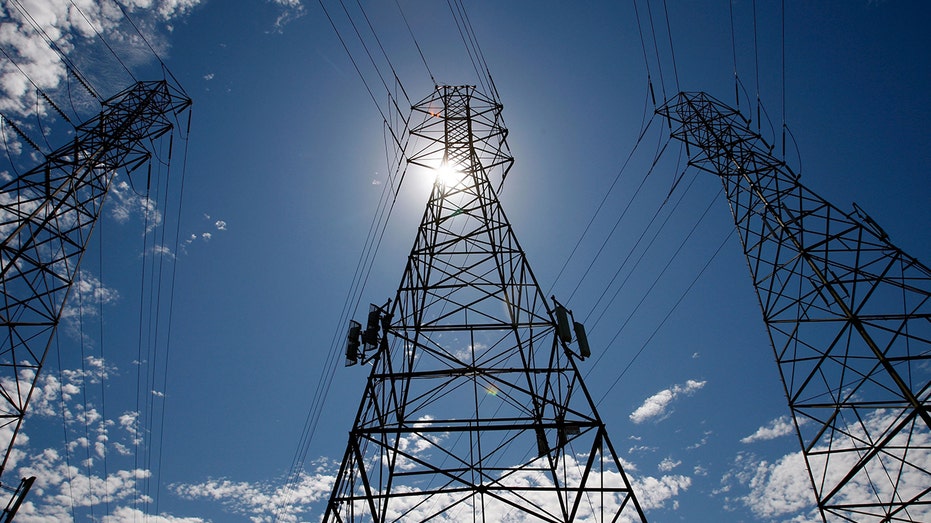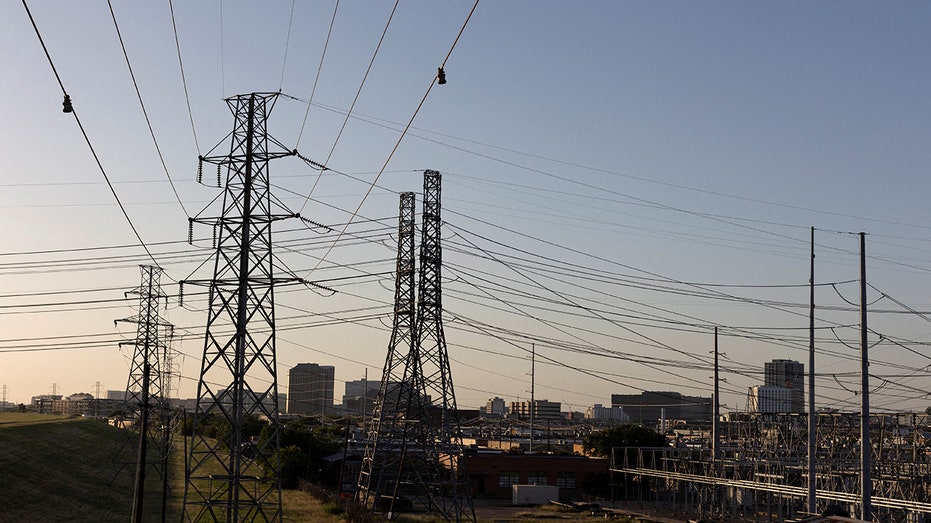Texas, California, NY energy companies say they're prepared to withstand scorching temperatures
Over 89M people are under active National Weather Service extreme heat advisories, watches and warnings
A number of American utility companies and grid operators say they're not expecting any major outages despite scorching-hot temperatures that are spanning much of the nation this week.
As of Thursday, over 89 million Americans are currently under active National Weather Service extreme heat advisories, watches, and warnings, according to the National Oceanic and Atmospheric Administration (NOAA).
EXTREME SUMMER HEAT FORCING SEVERAL COMPANIES TO WARN RESIDENTS ABOUT ENERGY USAGE
Even though there have been very few warnings in recent weeks for residents to reduce usage, history has shown that electrical grids have buckled under high demand, causing widespread blackouts.
In February 2021, Texas’ power grid failed in the face of a record winter freeze, leaving hundreds dead and millions of people in the cold for an extended time. The state faced historic snowfall and single-digit temperatures, which caused forced residents to turn up their heaters, including many inefficient electric ones. Demand spiked to levels usually seen only on the hottest summer days, which the state's power grid couldn't handle.

The sun shines over towers carrying electrical lines August 30, 2007 in South San Francisco, California. (Justin Sullivan/Getty Images / Getty Images)
Similarly, the California Independent System Operator (California ISO), ordered the first rolling blackouts in 20 years during the summer of 2020 when a heat wave, which surged to triple-digit temperatures, continued to strain the state's electrical system. California ISO had directed the state’s three biggest utilities – Pacific Gas & Electric, Southern California Edison and San Diego Gas and Electric – to shed their power loads.
With temperatures rising again this week, Consolidated Edison Inc., commonly known as Con Edison, which provides energy for roughly 10 million people who live in New York City and Westchester County, told customers that its teams are ready to respond if any issues occur.
SUMMER ELECTRIC BILL SHOCKER COMING
"Heat, humidity and increased demand for electricity to power air conditioners can cause cables to overheat and lead to outages," Con Edison said in a statement. "The coming days could also bring thunderstorms, which can affect the overhead delivery system and cause outages."
Meanwhile, a spokesperson from Eversource, New England's largest energy provider covering Connecticut, New Hampshire and Massachusetts, told FOX Business that its system operators are constantly monitoring the system, especially during the summer when customers use 25%-40% more energy.
"When necessary, can use remote switching capabilities to ease demand and improve the flow of electricity, reducing the risk for outages," the spokesperson said. "Our crews are also always ready to respond to any potential issues that can be caused by the weather."

Power lines are seen during a heatwave with expected temperatures of 102 F (39 C) in Dallas, Texas, U.S. June 12, 2022. (REUTERS/Shelby Tauber/File Photo / Reuters Photos)
The California ISO told FOX Business that its power grid is currently stable and is not anticipating supply shortages on the grid this week.
GET FOX BUSINESS ON THE GO BY CLICKING HERE
However, according to the California ISO, it's still monitoring closely for any changes, such as wildfires or generation or transmission outages that could impact supplies or the grid.
PG&E told FOX Business that it's prepared for the heat this summer and believes the "grid is better prepared than it was last year and the previous year to meet peak loads."
Still, every action matters, the company said. Earlier this summer, the company launched The Power Saver Rewards Program, which rewards customers for saving energy during select hot days through October.
"When everyone helps to reduce their electricity use, it reduces the overall strain on the grid during an emergency," PG&E said in a statement Thursday.
CLICK HERE TO READ MORE ON FOX BUSINESS
Last month, the Electric Reliability Council of Texas, Inc. (ERCOT), which operates Texas's electrical grid, asked Texans and businesses to voluntarily conserve electricity for a brief period as extremely hot weather continued to drive record power demand.
The organization hasn't issued any similar warnings since and told FOX Business that it "expects sufficient generation to meet forecasted demand."
The Associated Press contributed to this report.





















